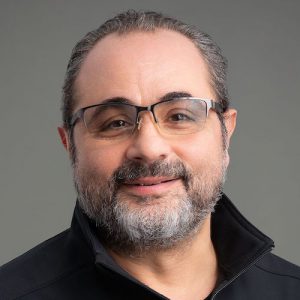Walid Farhat, MD,
GPLLM, FRCSC, FAAP, FACS
Credentials: Professor (CHS)
Chief, Division of Pediatric Urology
Mark and Karen Koulogeorge Chair in Urology
Director of Global Urology
Position title: Specialties: Pediatric Urology
Clinical Information at UW Health
Email: farhat@urology.wisc.edu
Phone: (608) 262-0475
Address:
UW Medical Foundation Centennial Building
1685 Highland Ave
MADISON, WI 53705-2281

Education
- Clinical/Research Fellowship, Urology, the Hospital for Sick Children/ University of Toronto, Toronto, Ontario, Canada, 1998-2000
- Observer, Urology, the Hospital for Sick Children/ University of Toronto, Toronto, Ontario, 1997
- Residency, Urology, American University of Beirut, Beirut, Lebanon, 1992-1998
- MD, Medical Degree, American University of Beirut, Beirut, Lebanon, 1988-1992
- BSc, Biology, American University of Beirut, Beirut, Lebanon, 1985-1988
Clinical Specialties
- Reconstructive Pediatric Urology
- Minimally Invasive Surgery in Children
Research Interests
- Genitourinary developmental biology
- Laparoscopic, single port and robotic surgery
- Urinary bladder tissue engineering
Walid Farhat, MD, FRCSC, FACS is a Professor of Urology and Chief of the Division of Pediatric Urology at the University of Wisconsin School of Medicine and Public Health. His clinical expertise in pediatric urology is in minimally invasive surgery (MIS) and reconstructive urology. In addition to his active clinical research activities, Dr. Farhat has a particular interest in the interface between engineers and surgeons on methods and strategies to enhance and improve surgical tools in the MIS field. His primary goal is to make surgical instruments more versatile and accessible to different end-users.
On the basic research front and resting on his research background in urinary bladder tissue engineering and developmental biology, Dr. Farhat’s lab examines mutant animal model genitourinary developmental anomalies. His current work is heavily collaborative with the UW Department of Psychology and includes investigating the intersection of hormonal milieu, early life stress, and epigenetics interaction to predict social development and mental health risk. The overarching intent of this collaboration is to understand how hormones and puberty blockers, irrespective of anatomical anomalies, could influence adolescent brain development and endocrine systems. This research will allow us to understand the overall impact of hormones, their relation to anatomy, and overall mental health and well-being.
Finally, Dr. Farhat is leading various global health initiatives. Using virtual curricula and needs assessments, Dr. Farhat collaborates with surgeons in other countries to enhance surgical skills and improve patient outcomes.


